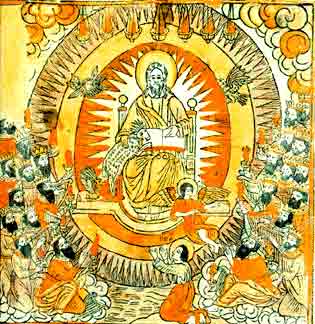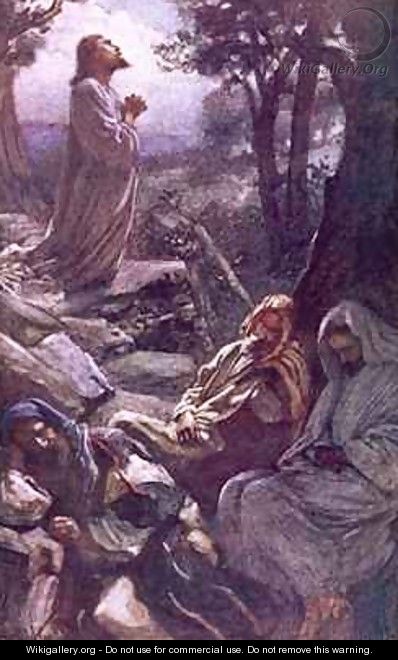Text of a sermon preached at St John the Baptist, Adel, Leeds.
Text: Genesis chapter 42
The book of Genesis offers us many well known stories that have passed into Christian and even secular consciousness. The longest sequence of these concerns Jacob and his twelve sons, a dynastic saga that sets the scene for the later Exodus. The passage that we heard read tonight is only a part of that sequence, towards the end of it in fact. You may well know the whole story, but in case it’s unfamiliar I will summarise it as follows:
Jacob, grandson of Abraham, had twelve sons, by his two wives and two servant girls. Joseph was the second-youngest, and Benjamin, born several years later, the youngest. These two were the only sons of Rachel, the other ten were their half-brothers, and that explains a lot that happens later in the story. As young men, the older brothers hated them because they were Jacob’s favourites, and even more so when Joseph told them of dreams that they would one day bow down to him. So they sold him to slave traders, who in turn sold him to an Egyptian official. Thrown into prison in Egypt, he escaped only when a former fellow inmate told the Pharaoh that Joseph had the gift of interpreting dreams. As a result of which, Joseph became finance and logistics minister, storing up surplus grain for the seven-year famine he had predicted. A famine that afflicted neighbouring countries including Canaan where his family lived. That’s the story so far.
So, in this episode, by which time Joseph was very well off, the older brothers come to see him to buy corn from the Egyptian stores. The whole story is rich in resonances, not only for our own time, but also for the wider message of the Gospel. Let’s look at a couple of them.
The first image that came to my mind when I pondered it is the many movements of people around the world today displaced by war, disease, famine or flood, such as the so-called caravan of migrants into the USA, or the asylum seekers crossing the North Sea in small boats. I don’t imagine for a moment that Jacob’s was the only family that went down to Egypt to seek food or work in the drought, there must have been thousands. Joseph presumably had to receive all of them to assess their needs. Far from being hostile to these refugees from natural disaster, he – and his Egyptian masters – were willing to help them. At the end of the story, Jacob’s extended family is invited to settle permanently in Egypt.
What a contrast that is to the attitudes of suspicion we so often see around us. There is good work being done in Leeds by a network of churches and voluntary organisations to support homeless people, asylum seekers and refugees. Jesus would approve – he proclaimed his mission as being to seek and save the lost, he spoke to despised groups of people, he told the story of the good Samaritan (as unlikely an idea in some people’s eyes as the good asylum seeker).
Back to the story – It’s quite understandable that Joseph, however generous to other visitors, would not want to greet his brothers joyfully as soon as he recognised them. The anger and hatred he may have felt at the time of his enslavement may have been long gone, but the wrong they had done would not have been forgotten, and how was he to know whether he could trust them now? Reuben, the eldest, reveals that he had opposed any harm to Joseph, so in sending the rest of them back with the grain they had paid for he retains the second eldest, Simeon, as a hostage.
That is the other image I want to bring out – the hostage. We know about hostages of course – it’s a practice found in probably all societies. The reason for keeping a hostage is to barter them for something – ransom money, another prisoner in exchange, or a favour from the other side. The news this week has been of a British registered tanker and its crew held hostage by the Iranians as a revenge for us detaining one of theirs. God willing, they will eventually both be released.
Joseph knew all too well what it was to be a hostage – thrown into a pit by his brothers until he was ransomed by slave traders – out of the frying pan and into the fire we might say. His second spell in imprisonment was for refusing to sleep with his master’s wife. We might call him a prisoner of conscience. We know all about them too – how about Nazanin Zaghari Ratcliffe, who is according to Amnesty International a prisoner of conscience in Iran, although she could also be described as a hostage in the international tensions between Iran and the west.
Joseph’s motive in keeping Simeon hostage, though, is different – it’s to ensure he doesn’t lose connection with his family again, and also so that he can get to see Benjamin, his youngest and closest brother.
One of the explanations sometimes given of Jesus’ death is that he was offered by God as a ransom for the evil in the world that keeps us hostages apart from God. The good news is that we don’t have to offer anything in return – the ransom is paid, we are free to go, we only need to accept that he has reconciled is back into God’s family. Much of the New Testament explores this theme of reconciliation, of drawing people back into God’s family where they belong.
So we have in the story of Joseph at least three universal themes that find their fulfilment in Jesus Christ – welcoming refugees, ransoming hostages, and restoring broken relationships. Joseph overcame the setbacks of his early life through faithful service, and persevered until they had been put right – not by vengeance, but by patience, generosity and love. May he be a model for our own discipleship.
(c) Stephen Craven 2019

